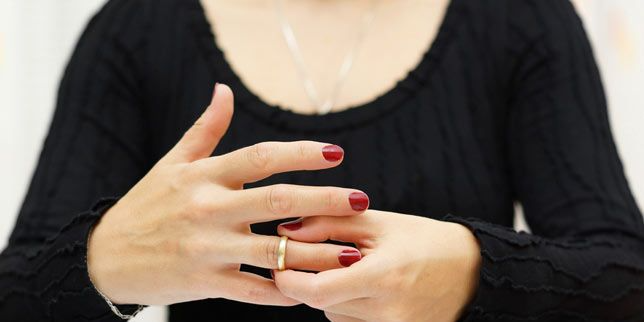Home/Khula & Divorce/Senior Family Lawyers For Divorce & Khula Cases in Karachi, Islamabad, Rawalpindi, and Lahore
Khula | خلع۔ اردو | Family & Divorce Lawyers in Karachi-Urdu
Best Family and Divorce Lawyers in Karachi for Court Proceedings and Online Legal Services
Our Family and Divorce Law Section of Right Law Associates, in Karachi, is renowned for handling a wide spectrum of family law matters with professionalism, empathy, and legal precision. As a leading law firm in Pakistan, we offer expert legal representation in divorce, Khula, child custody, guardianship, spousal maintenance, dowry recovery, conjugal rights, and all other family-related case proceedings in the Family Courts of Karachi. Our experienced family lawyers understand the emotional complexities of family disputes and work diligently to secure favourable outcomes for our clients. One of our landmark offerings includes Marriage and Divorce Documentation services, specifically designed for Pakistanis living abroad and foreign nationals, allowing them to process their online Nikah, court marriage, or divorce through legally verified documentation and registration under Pakistani law. With full commitment to client confidentiality and legal accuracy, we are proud to be your trusted advocates in all family law matters.
کراچی میں فیملی اور طلاق کے بہترین وکیل – عدالت میں مقدمات اور آن لائن قانونی خدمات کے لیے
رائٹ لا ایسوسی ایٹس کے فیملی اور طلاق کے قانون کے شعبہ کو کراچی میں فیملی قوانین کے مختلف معاملات کو پیشہ ورانہ مہارت، ہمدردی اور قانونی درستگی کے ساتھ نمٹانے میں اعلیٰ مقام حاصل ہے۔ پاکستان کی ایک نمایاں لاء فرم کے طور پر، ہم خلع، طلاق، بچوں کی حوالگی (کسٹڈی)، سرپرستی (گارڈین شپ)، بیوی اور بچوں کے نان نفقہ، جہیز کی واپسی، حقوق زوجیت کی بحالی، اور دیگر تمام فیملی معاملات میں فیملی کورٹس کراچی میں قانونی نمائندگی فراہم کرتے ہیں۔
ہمارے تجربہ کار فیملی وکلاء خاندان سے متعلقہ تنازعات کی جذباتی نوعیت کو سمجھتے ہیں اور اپنے مؤکلوں کے حق میں بہتر فیصلے دلوانے کے لیے انتھک محنت کرتے ہیں۔ ہماری نمایاں خدمات میں شادی اور طلاق سے متعلق دستاویزی خدمات شامل ہیں، جو خاص طور پر بیرونِ ملک مقیم پاکستانیوں اور غیر ملکیوں کے لیے فراہم کی جاتی ہیں۔ ان خدمات کے ذریعے وہ آن لائن نکاح، کورٹ میرج یا طلاق کے قانونی عمل کو مکمل طور پر رجسٹرڈ اور تصدیق شدہ پاکستانی قانون کے تحت مکمل کر سکتے ہیں۔
ہم رازداری، قانونی درستگی اور مؤثر خدمات کے ساتھ ہر فیملی لاء مقدمے میں آپ کے قابلِ اعتماد وکیل ہیں۔
KHULA - The Dissolution of Marriage By a Wife
Khula in Pakistan: Legal Right of a Muslim Wife to End Her Marriage
Khula is a legal process under Islamic law through which a Muslim wife can seek dissolution of her marriage by returning the dower (mahr) received from her husband. Unlike talaq, which is a husband’s right to divorce, Khula empowers the wife to initiate legal proceedings in a family court to end the marital bond. The wife’s request for Khula is independent of the husband’s consent, and the court evaluates her petition based on the circumstances. In Pakistan, Khula serves as a vital legal remedy for women seeking separation on valid grounds, ensuring their right to exit an unfavorable or abusive marriage.
Decree From the Family Court Required For Khula
Khula Procedure in Pakistan: Legal Decree for Dissolution of Marriage
Under Pakistani law, the Khula process begins when a Muslim wife files a petition in the family court to dissolve her marriage. The wife must obtain a formal Khula decree from the court, which legally ends the marriage. Once the decree is granted, she is no longer bound by the marriage and is free to remarry if she chooses. During the court proceedings, the husband may contest the petition, agree to it, or allow the process to proceed uncontested. The legal system ensures that the wife’s right to Khula is protected, offering a lawful and dignified exit from the marriage when reconciliation is not possible.
Valid Reason Required To Convince The Court for Khula Decree
When the Husband Refuses Khula: Legal Recourse for Women in Pakistan
In the Khula process under Pakistani family law, the husband’s consent is not mandatory for the wife to seek dissolution of marriage. While the husband cannot be forced to agree to Khula, the wife can still petition the family court to grant it without his approval. In such cases, the wife must present valid and compelling reasons before the court to justify her request for Khula. These reasons may include mental or physical cruelty, neglect, incompatibility, lack of financial support, or other legitimate concerns. The court evaluates the evidence and circumstances before issuing a Khula decree, ensuring the wife’s legal right to end an irreparable marital relationship.
Family Court shall Record Evidence For Khula
After recording evidence from both parties, if the Court finds that there is a valid reason for granting Khula, it will grant an order of dissolution of marriage on that basis. If it does not, it will dismiss the case against divorce application by a wife (Khula).
Judgment For Granting or Not Granting Decree For Khula
In either case, this judgment will be binding on both parties and neither party can file another divorce case after this judgment. However, if new facts come into existence later on, then either party can file a fresh divorce case based on those facts.
Determination of Unspecified Quantity of Mehar (Mahr), in case of Khula
If the amount of mehar (mahr) cannot be determined, i.e., if it was given as “the worth” of something or an unspecified quantity, then it must be decided through arbitration by two just men from the wife’s family and two from the husband’s family. If this is not possible, then the husband may appoint someone else as his representative, while the wife retains her right to appoint someone from her own family (Quran 4:35).

Two Major Family Laws Govern Khula Proceedings
MFLO, 1961 and the Family Court Act, 1964 are two major laws that govern Khula proceedings in Pakistan.
According to Khula laws in Pakistan, if a wife is unable to get a divorce from her husband she has right to file a case in family court, having territorial jurisdiction. It is advisable for the wife to provide sufficient argument in favor of his case to get Khula. Additionally, she normally needs a competent and experienced lawyer family
lawyer for her case.
What Does the Word "KHULA" Mean?
The word ‘Khula’ originates from Arabic. When used by the Quran in reference to the Islamic marriage contract, the word Khula means to “undo,” “dissolve,” “remove” or “loosen”. Khula, in simple words, also means to “untying the knot”. Generally, it means emancipation or separation. In Islamic law, it refers to the procedure by which a wife obtains a divorce from her husband when she has returned her dower amount to him in exchange for her freedom from the marriage. According to Pakistan Family Laws also, Khula means the dissolution of marriage, on wife’s with and demand.
Who can file a Khula in Pakistan?
Khula in Pakistan can be filed by any Muslim wife. As per Pakistan law, only a wife is allowed to file a case for khula. on the contrary cases from Male/Husbands are handled by an arbitration council.
STEP-BY-STEP KHULA PROCEDURE OF FAMILY COURT IN PAKISTAN
Court Procedure for Khula in Pakistan
The Khula process begins when a wife files a suit for dissolution of marriage in the Family Court having jurisdiction over her residence. The following steps typically occur:
Filing of the Petition:
The wife submits a Khula petition stating her reasons for seeking dissolution. These reasons must be genuine, such as cruelty, abandonment, non-support, or irreconcilable differences.Notice to the Husband:
The court issues a notice to the husband, allowing him to respond. He may either contest or remain silent, but his consent is not required for Khula to proceed.Reconciliation Attempts:
The Family Court usually makes efforts to reconcile both parties through mediation. If reconciliation fails, the court proceeds with the case.Evidence and Hearings:
Both parties may present evidence. The wife is expected to prove that the marriage cannot continue under Islamic principles of mutual respect and harmony.Khula Decree Issued:
If the court is satisfied with the wife’s grounds, it issues a Khula decree. The wife may be required to return the dower (mahr) received at the time of marriage.Effect of the Decree:
Once the decree is passed, the marriage is legally dissolved. The court also issues a Certificate of Dissolution of Marriage, which can be used for legal and personal records.
Legal Rights of Women in Khula Cases
Right to initiate proceedings: A Muslim wife has the independent right to file for Khula.
No mandatory approval from husband: The husband’s refusal does not block the legal process.
Right to child custody and maintenance: Even after Khula, the wife may claim custody of minor children and seek child maintenance as per Pakistani law.
Right to remarry: After the Iddat (waiting period), the woman is free to remarry.
Right to legal representation: Women have the right to appoint a family lawyer to represent them in court for the Khula process.
Frequently Asked Questions About Khula in Pakistan
Q1: What is Khula in Pakistan?
Khula is the legal right of a Muslim wife in Pakistan to seek the dissolution of her marriage through a Family Court. Unlike Talaq (divorce initiated by the husband), Khula is initiated by the wife, typically by returning her dower (mahr).
Q2: How can a wife file for Khula in Karachi or other cities of Pakistan?
A wife can file a Khula petition in the Family Court located in her area of residence. She must state valid reasons for seeking separation and follow the court’s legal process.
Q3: Is the husband’s consent required for Khula in Pakistan?
No, the husband’s consent is not mandatory for Khula. If the wife proves before the court that she cannot live with her husband within the limits prescribed by Islam, the court can grant a decree of Khula even without the husband’s approval.
Q4: What are valid reasons for Khula under Pakistani law?
Common reasons accepted by the courts for granting Khula include:
Cruelty or abuse
Lack of financial support
Long-term separation or abandonment
Irreconcilable differences
Forced marriage
Incompatibility
Q5: What happens to the dower (Mahr) in a Khula case?
In most cases, the wife must return the dower (mahr) amount received from the husband at the time of marriage, unless waived by the husband or the court finds otherwise.
Q6: Can a woman remarry after getting a Khula decree?
Yes, once the Khula is finalized and after the Iddat period (typically three menstrual cycles or three months), the woman is legally free to remarry.
Q7: Who gets child custody after Khula?
The mother usually retains custody of minor children, especially if they are below a certain age. However, the father remains responsible for the child’s financial support. The court decides based on the best interests of the child.
Q8: How long does the Khula process take in Pakistan?
The duration of a Khula case may vary depending on the case complexity and court workload, but it generally takes between 2 to 6 months.
Q9: What documents are needed to file for Khula?
To initiate the Khula process, the wife will typically need:
Her CNIC (National Identity Card)
Copy of the Nikahnama (Marriage Certificate)
Details of the husband
Grounds for Khula
Evidence supporting her claims (if any)
Q10: Can foreigners or overseas Pakistanis apply for Khula in Pakistan?
Yes, overseas Pakistani women and foreign Muslim women married under Pakistani law can apply for Khula through a special power of attorney and legal representation in Pakistani courts.

خُلع کے بارے میں عمومی سوالات (FAQs) – پاکستان میں خُلع کا قانونی طریقہ کار
سوال 1: پاکستان میں خُلع کیا ہے؟
خُلع ایک مسلم خاتون کا قانونی حق ہے جس کے ذریعے وہ فیملی کورٹ میں درخواست دیکر اپنے شوہر سے شادی ختم کروا سکتی ہے۔ یہ طلاق سے مختلف ہے کیونکہ طلاق شوہر دیتا ہے، جبکہ خلع عورت کی طرف سے ہوتی ہے۔
سوال 2: کراچی یا پاکستان کے کسی بھی شہر میں خُلع کے لیے کیسے درخواست دی جاتی ہے؟
خاتون اپنے رہائشی علاقے کی فیملی کورٹ میں خُلع کی درخواست دائر کرتی ہے۔ درخواست میں خلع کی وجوہات بیان کرنا ضروری ہوتا ہے اور قانونی طریقہ کار کے مطابق کاروائی ہوتی ہے۔
سوال 3: کیا خُلع کے لیے شوہر کی رضامندی ضروری ہے؟
نہیں، پاکستان کے قانون کے تحت شوہر کی رضامندی خلع کے لیے ضروری نہیں۔ اگر بیوی یہ ثابت کر دے کہ وہ شوہر کے ساتھ اسلامی حدود میں زندگی بسر نہیں کر سکتی تو عدالت شوہر کی رضامندی کے بغیر بھی خلع کا حکم جاری کر سکتی ہے۔
سوال 4: پاکستان میں خُلع کے لیے کیا وجوہات قبول کی جاتی ہیں؟
عدالت میں درج ذیل وجوہات کو عموماً خُلع کے لیے قابل قبول سمجھا جاتا ہے:
شوہر کا ناروا سلوک یا مار پیٹ
نان نفقہ نہ دینا
طویل علیحدگی یا بے رخی
زبردستی کی شادی
ذہنی ہم آہنگی کا نہ ہونا
سوال 5: خلع کی صورت میں حق مہر کا کیا ہوتا ہے؟
اکثر صورتوں میں عدالت عورت کو شوہر کو حق مہر واپس کرنے کا حکم دیتی ہے، تاہم بعض اوقات اگر حالات مخصوص ہوں تو عدالت حق مہر معاف بھی کر سکتی ہے یا کم کر سکتی ہے۔
سوال 6: کیا خُلع کے بعد عورت دوبارہ شادی کر سکتی ہے؟
جی ہاں، جب خلع کا فیصلہ ہو جائے اور عدت کی مدت (عموماً تین ماہ یا تین حیض) مکمل ہو جائے تو عورت دوبارہ نکاح کر سکتی ہے۔
سوال 7: خُلع کے بعد بچوں کی کس کو تحویل (کسٹڈی) ملتی ہے؟
عموماً نابالغ بچوں کی تحویل ماں کو دی جاتی ہے، خاص طور پر اگر بچے چھوٹے ہوں۔ والد بچوں کی مالی معاونت کا پابند ہوتا ہے۔ عدالت بچوں کے بہترین مفاد کو مدِنظر رکھ کر فیصلہ کرتی ہے۔
سوال 8: پاکستان میں خُلع کا عمل کتنے عرصے میں مکمل ہوتا ہے؟
خلع کا مقدمہ عدالت میں دائر ہونے کے بعد عموماً 2 سے 6 ماہ کے درمیان مکمل ہو جاتا ہے، تاہم یہ وقت کیس کی پیچیدگی اور عدالت کے نظام پر منحصر ہوتا ہے۔
سوال 9: خُلع کی درخواست کے لیے کون سے دستاویزات درکار ہوتے ہیں؟
خُلع کی درخواست دائر کرنے کے لیے عام طور پر درج ذیل دستاویزات درکار ہوتی ہیں:
عورت کا شناختی کارڈ (CNIC)
نکاح نامہ کی کاپی
شوہر کا نام و تفصیلات
خلع کی وجوہات
اگر موجود ہوں تو شواہد یا گواہ
سوال 10: کیا بیرون ملک مقیم پاکستانی خواتین پاکستان میں خلع لے سکتی ہیں؟
جی ہاں، اوورسیز پاکستانی خواتین اور غیر ملکی مسلم خواتین جو پاکستانی قانون کے تحت شادی شدہ ہوں، وکیل یا پاور آف اٹارنی کے ذریعے پاکستان میں خلع کا مقدمہ دائر کر سکتی ہیں۔
اگر آپ کو خلع یا دیگر فیملی لاء کے معاملات میں قانونی مدد درکار ہو، تو ہماری ماہر فیملی و ڈائیورس وکیل میڈم ثوبیہ محسن سے رابطہ کریں – کال کریں یا وزٹ کریں: www.divorce.com.pk

📌 Quick Summary: Khula in Pakistan—A Woman’s Right to Separation
What is Khula?
Khula is the legal right of a Muslim woman in Pakistan to seek dissolution of marriage through a family court when cohabitation becomes unbearable or incompatible.
Who Can File?
Only the wife can initiate a Khula. She files a petition in the Family Court under the West Pakistan Family Courts Act, 1964.
Do You Need the Husband’s Consent?
No. If the court is satisfied with the wife’s reasons—such as cruelty, incompatibility, neglect, or lack of maintenance—it can grant Khula even without the husband’s consent.
Is Returning Haq Mehr Mandatory?
Yes. In most cases, the court may require the wife to return Haq Mehr (dower) or part of it to the husband as a condition of Khula.
Duration of the Process:
Khula cases generally take between 2 to 4 months, depending on the court and documentation provided.
Where to File?
The petition must be filed in the Family Court of the area where the wife resides (even temporarily) or where the marriage was solemnized.
What Happens After Khula Is Granted?
After the court issues a decree, a notice is sent to the Union Council, which issues a confirmation certificate after 90 days (iddat period), completing the process.
📞 Need Help Filing a Khula Case in Karachi, Lahore, or Islamabad?
Contact our experienced family law team led by Madam Sobia Mohsin Shah. We provide confidential legal advice and full representation in family courts across Pakistan.
📲 Call Now: +92 336 37 47 047
🌐 Visit: www.RightLaw.com.pk
Call us: +92 336 3747047
Call us: +92 302 6644789
Call us: +92 316 6644789

